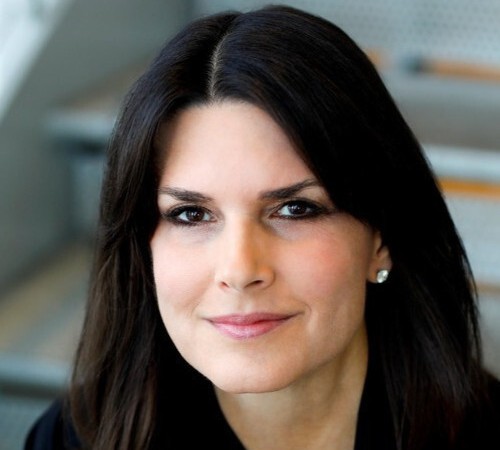Medical Home Network’s Baseball Card platform now offers physicians at-a-glance patient stats
Building on its previous success, the technolgy platform behind a Chicago-area accountable care organizaion is setting its sights on establishing a national footprint.
Medical Home Network, which manages the Medical Home Network ACO, has also implemented its new MHN Baseball Card platform to provide clinicians with at-a-glance patient data and risk scores for their patients, and is has fine-tuned its AI-powered risk stratification model to be even more predictive, says Cheryl Lulias, MHN president and CEO.
With this technology, MHN has reduced addressable social determinants of health by more than 37%, Lulias says. And it’s integrating admission, discharge, transfer, and other patient data across four different electronic health record systems for 13 health systems – including 31 hospitals in the Chicago area alone – and more than 160,000 Medicaid safety net patients.
System integrations give providers real-time alerts concerning hospital admissions and discharges and prompt providers to follow up with patients on tasks described in their discharge plans.
Clinicians can review patient histories and care plans, assess their adherence to prescription medications, and review actions taken in skilled nursing facilities and in so doing, potentially avoid unnecessary emergency hospital readmissions or other emergency room visits.

Cheryl Lulias, president and CEO of the Medical Home Network. Photo courtesy MHN.
"We start our care management process by screening on social determinants,” Lulias says. “Are you housing insecure? Are you food insecure? Do you have transportation issues? Do you feel safe? Rate your own health.”
"We've applied AI for about three years,” she adds, ”and we've created a dynamic risk stratification based on social determinants of health, and this flows through the baseball card to write the risk score."
MHN has shown that healthcare costs increase by 60% for patients affected by one social determinant of health, Lulias says, while patients facing four or five social determinants will be 200% more expensive in the future, even if they have no other medical risk factors.
During the COVID-19 pandemic, MHN was able to identify SDH risk factors in 15,500 of its 167,000 lives, and had care teams calling the day after initial treatment to connect them to the appropriate services and resources, she says.
"Our mission has been to transform care and build healthier communities in the safety net," Lulias says. "We were started to unite disparate providers, to organize them around a shared vision for really improving the health of the communities we collectively serve, but also to create a new model of care, in a much more integrated fashion, where MHN could be the convener to bring together primary care hospitals to work in service of the patient in a more organized way.”
"Our mission is national," she adds. "We want to transform care and build healthier communities in the safety net nationally."
One way of growing that national footprint is MHN's ongoing partnership with athenahealth.
"Athena is one of the EMRs that several federally qualified healthcare centers are on," Lulias says.
Last November, MHN's Baseball Card technology, which was developed internally at MHN, was deployed to eight FQHCs, part of an MHN ACO that consists of 13 such centers and three hospital systems. Rollout to other EMR systems and the clinics they serve will continue during 2022.
New MHN integrations are underway in Missouri, North Carolina, Ohio, and southern California, Lulias says.
"We're going to continue to accelerate our development," she says. "Our goal is to bring in all the digital relevant data to continue to enable a 360-degree view of the patient, and to optimize accurate and fulsome communication between members of the care team."
Exchanging real-time alerts is important, "but we think it's table stakes, to put it in context of the broader data, so you can make an intelligent assessment and prioritize what you need to do with it," she says.
Today, the ACO is at 50% risk, but over time Lulias expects that to increase.
The initial $6 million funding for the nonprofit Medical Home Network that operates the ACO came from the family of Gary Comer, founder of Land's End, in 2009. After the ACA passed, MHN received a supporting grant from the Illinois Medicaid program. Today, Lulias says, most of its revenue comes from service charges.
At this point, primary care has returned to more in-person encounters, but Lulias says virtual care is here to stay.
"There's a lot of value to virtual visits, but the key is knowing what all parts of the delivery system are doing, so you can optimize patient care coordination and care," she says.
Another key technology component is mapping all patient information to a standard enterprise master-patient index.
"It's really important, from a tech standpoint, to take all this disparate information and manage it to an individual member, no matter what the source of the data or the format of the data," Lulias says.
“We were started to unite disparate providers, to organize them around a shared vision for really improving the health of the communities we collectively serve, but also to create a new model of care, in a much more integrated fashion, where MHN could be the convener to bring together primary care hospitals to work in service of the patient in a more organized way.”
— Cheryl Lulias, president and CEO, Medical Home Network.
Scott Mace is a contributing writer for HealthLeaders.
KEY TAKEAWAYS
Using this technology, healthcare providers have been able to reduce addressable social determinants of health by more than 37%.
The master-patient index technology manages data down to the individual patient level.
The technology is now being deployed in clinics in Missouri, North Carolina, Ohio, and California.
